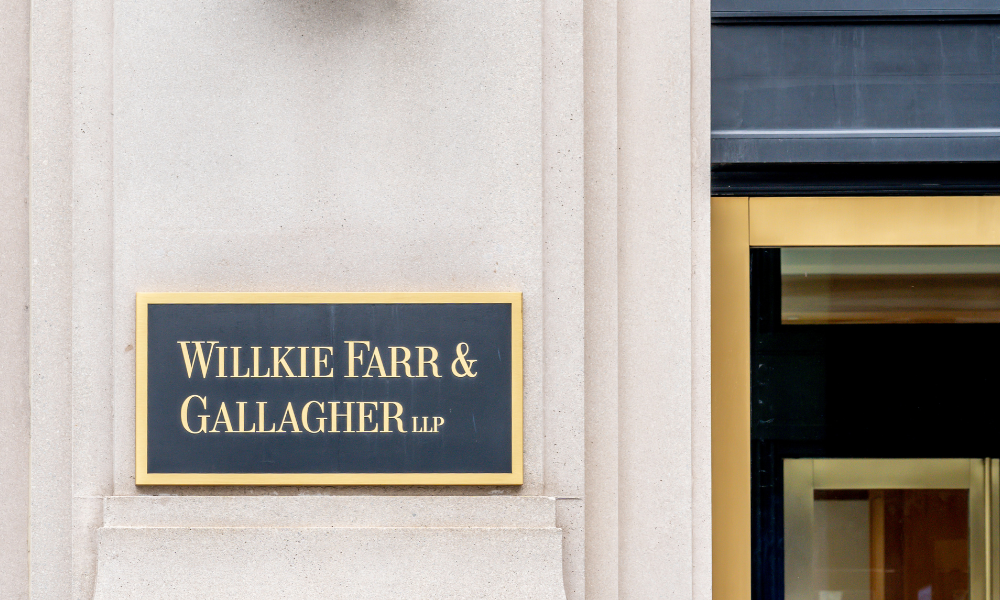
The global firm counts Kamala Harris' husband as one of its partners

Global firm Willkie Farr & Gallagher is the latest law firm to ink a deal with US President Donald Trump and his administration to protect its business, reported Reuters.
The firm follows in the footsteps of Paul Weiss and Skadden & Arps. Willkie Farr’s agreement with Trump stipulates that to avoid an executive order, the firm will provide pro bono legal services amounting to US$100 million to projects agreed upon with the current US administration; the deal also requires Willkie Farr to eliminate diversity-based hiring practices.
Willkie Farr counts Doug Emhoff, husband to former US Vice President Kamala Harris, as one of its partners. Reuters said that as per a person who was familiar with the matter, Emhoff had challenged the decision made by the Willkie Farr leadership; he had advised the firm to push back against Trump’s moves. At a Georgetown Law School event this week, he had told an audience of students in a snippet published by Reuters that lawyers needed to “do what we can to push back” against the attack on the rule of law.
In an internal email shown to Reuters, Willkie Farr’s executive committee told staff that they knew the decision was not popular. Willkie Farr Chairmen Thomas Cerabino and Matthew Feldman said in a statement published by Reuters that the agreement’s substance was “consistent with our firm’s longstanding practices.”
The White House said in its announcement of the deal that the firm had initiated interactions with Trump and the administration, “offering their decisive commitment to ending the Weaponization of the Justice System and the Legal Profession,” as per a snippet published by Reuters.
Reuters said that Emhoff did not immediately respond to a request for comment on Willkie Farr’s deal.
Perkins Coie, WilmerHale, and Jenner & Block, which were targeted in Trump’s executive orders, opted to fight back in court; last Friday, Washington judges temporarily shot down critical provisions of the orders.
John Bates called out how Jenner & Block was seemingly being attacked for representing transgender people and immigrants pro bono; Richard Leon noted that fallout from the order against WilmerHale would severely impact the justice system.
Bates blocked an order provision calling for the cancellation of federal contracts won by Jenner & Block’s clients, as well as a provision cutting off the firm’s access to federal buildings and officials. Similarly, Leon blocked a provision limiting WilmerHale’s access to government buildings and officials; however, he would not grant the firm’s request to strike down a provision that suspended its lawyers’ security clearances.